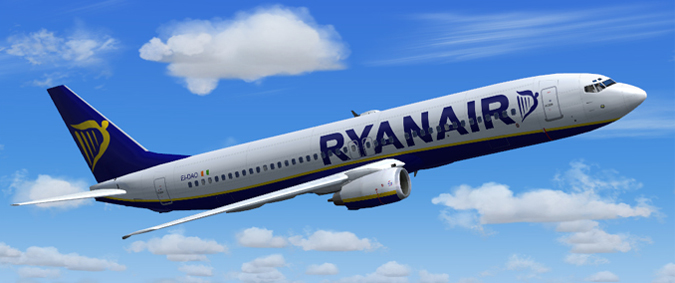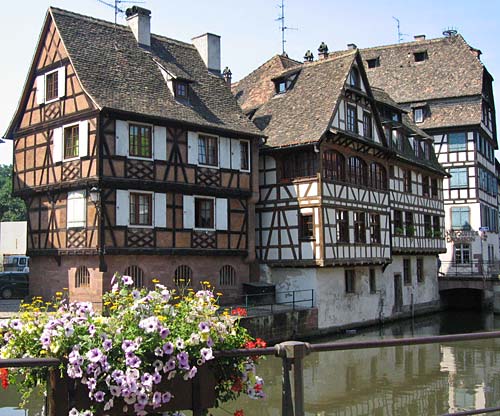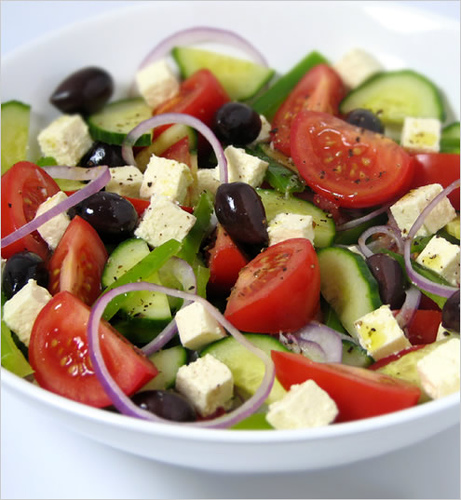Upon arriving in Europe for the first time most MUDEC students hop on a plane and jet off to Amsterdam, Paris, or Munich – the typical tourist cities – but few choose a different path. Some Miamians are more adventurous picking more exotic and out-of-the-way destinations including, but certainly not limited to: Morocco, Greece, Strasbourg, Rotterdam, Vienna, and Finland. While these trips take more planning, are more expensive, and can be more frustrating and challenging, they are also more rewarding. In the following blog MUDEC students describe their experiences “off the beaten path” – some good, some bad, and some downright scary. While these trips pushed them out of their comfort zones, they all returned to Luxembourg unscathed, minus some sun burn and a few blisters, and full of impressive stories and unforgettable memories that will last them a life time. In the words of Robert Frost, “Two roads diverged in a wood, and I – I took the road less traveled by, and that has made all the difference.”
Many times, taking the road less traveled requires less traditional means of transportation than the typical MUDECer uses. This is in part because the less traveled roads are routinely synonymous with long distance and out of the way destinations. While coordinating transportation to far off places can cause some headaches and empty your wallets, there are great resources to help make transportation a walk in the park.
As you begin researching options of transportation, try starting with budget airlines such as Ryan Air and EasyJet. Budget airlines offer extremely cheap fares from ‘less traveled’ airports and make traveling long ways affordable and practical. You should, however, be cautious when booking a fare as many budget airlines tack on extra fees for checking a bag or using a credit card and don’t offer reserved seating or in-flight beverage services.
Upon arriving at your destination ask at information desks to learn more about less well-known means of transportation. For example, when getting from the mainland in Greece to the island of your choosing, try a high-speed fairy to jet you across the sparking blue water in no time at all. While in Greece, consider taking a donkey to the top of a cliff instead of walking or rent an ATV to ride around the Greek Isles instead of being dependent on expensive taxis or bus rides that can cause long waits. In Morocco, a camel ride is a great way to get from point A to point B and leaves you with a spectacular story to tell friends and family. Regardless of your destination, there are countless modes of fun, enjoyable transportation that won’t empty your pocket.
Tourism
The next question becomes what should you do in a city that may be off the beaten track of typical European tourism? Luckily it is almost impossible to travel throughout Europe (and the Mediterranean) without finding something, and the Internet is littered with information about what to do when you go off the beaten track. Some great resources for your initial research might be online guidebooks if you already have a city in mind. A few of the better guidebooks include:
• Let’s Go
Or if you’re interested in searching for a place to go and something to do there try reading some of the blogs by past MUDEC students such as:
• “Experiencing Beauty Amidst Conflict” written by Chelsea Clark about Greece
• “The Magnificent Lipizzaners” written by Catherine Schaser about Vienna
• “Holland: A Country Defined By A Color” written by Rachel Barr about Holland
• “Strasbourg – A City Shaped by Rivals” by Rachel Barr about Strasbourg
• “A Bizarre Bazaar” by Will Poindexter about Morocco
Just as important as finding out what to do in these cities, however, is learning what not to do in certain cities. In Morocco, for example, you would be advised not to pay full price for anything in the souq (market) district because there people barter for everything, as recounted by Lauren Brill in her blog “More Than a Market.” A good way to learn about what customs and traditions different places have is to study guidebooks, do basic internet searches about the area (such as a Google search for “Moroccan Customs”) and check past MUDEC blogs written by people who have gone through the same thing. Traveling to less standard places in and around Europe is often more complicated and stressful than weekend getaways to popular destinations such as Paris, but if planned properly these trips can be much more enjoyable and beneficial.
Even though English is spoken throughout most of Europe it still can’t hurt to know a few key phrases in foreign languages. It is also important to note that the amount of English spoken will vary by country as well. In countries like the Netherlands seemingly everyone is fluent in English, but there will be places, for example in small towns in Alscace, where a few people speak broken English at best. Although you will probably butcher the pronunciation of “Combien fait?” just trying to speak the simplest of phrases will definitely put a smile on the locals’ faces.
Here are some common words and phrases that will help you out during your stay in some of the places we have mentioned:
Language: French, Spanish, Greek, Dutch
Hello -
Thank you -
Please -
You’re welcome -
Excuse me -
How much?
Where is ______?
Check please -
Do you speak English?
FOOD
Although many MUDEC students chose cities and countries off the beaten path, two of the most popular less-traveled-to destinations are known for their culinary treats. Morocco and Greece are two of the places visited by students who have time-after-time talked about the great food available on a tight budget.
Morocco
Trade between Africa and Europe has influenced Morocco for centuries. Morocco is a nation that suffers from desertification, which is the erosion of fertile lands due to lack of rainfall and clearing of trees. Cumin, saffron, cinnamon and paprika are staples in most Moroccan dishes. Food is cooked in earthenware’s, or both the pot and dish, which inculcates lamb, chicken, and other meats mixed with vegetables. The taine, like other Moroccan dishes, is known for its distinctive flavoring, which comes from spices including saffron, cumin, coriander, cinnamon, ginger, and ground red pepper. The taine's name is taken from the distinctive earthenware dish with a cone-shaped top in which it is cooked and served.
Five more native products that are especially important in Moroccan cooking are lemons, olives, figs, dates, and almonds. Nuts are popular, along with lemon, to give extra flavor to dishes. Sweets include cinnamon and fruits rolled in dough soaked in honey. Olives are also grown in vast regions of Morocco, and are used for oils, foods, and cosmetics.
Located on the coast of the Mediterranean Sea, the country is rich in fish and seafood. Beef is not plentiful, so meals are usually built around lamb or poultry. Most meals include mint tea to wash everything down. The most unique aspect of Moroccan cuisine are the spices which make the food of Morocco so delicious.
Greece
The Greeks have been perfecting their cuisine for eons. Dinner in Greece often starts sometime around 10:00 PM and ends sometime after 1:00 or 2:00 AM. In addition to having a late dinner, as with most places in Europe, getting the check in Greece can be a tough task. Always be prepared to ask for it in advance if you are in a hurry!
In Greece a meal must always include a Greek salad, or a “horiatiki salata,” because it is delicious, fresh and healthy. It often consists of tomatoes, onions, cucumbers, olives and peppers, along with feta cheese and topped with olive oil. It is a tasty dish that few people don’t enjoy.
Other meals one must try while in Greece include: fresh fish, often the fish of the day, calamari, and cheese pie. Calamari is popular in the United States, but in Greece it is more “exotic looking.” The squid is often cut and fried, but in some cases, the squid comes out grilled on a plate without being cut up. It was served with lemon, lettuce and onion. A few drops of olive oil made a favorite meal of many. While in Greece, one must also try the grilled octopus. It has a very distinctive taste that is difficult to describe, but it is delicious and relatively cheap compared to many expensive meals found in Paris or Switzerland.
For a cheap lunch on the go, gyros are number one! They are pitas with pork, lamb or chicken plus lettuce, tomatoes, onions, fries and sauce. They are very cheap, filling and delectable. You can easily find a tasty gyro for two euros. If you decide to sit down for lunch, get a nice Greek salad, large water, and tzatziki, a delicious mix of olive oil, yogurt and cucumbers. Even for those who don’t like yogurt or cucumbers, tzatziki can still be a great side option, and if you eat it with pita and bread you will not be sorry!
On the rural roads in Greece you will see little kiosks where the farmers sell produce and fresh fruits. This is another great way to fill your stomach in a delicious and healthy way!
It is impossible to find a bad meal in Greece. Be adventurous and try all the unique and tasty cuisines available.
Now that you have read about getting to remote cities, researching out-of-the-way places, speaking a little of the language and learning about the traditional foods, now it is time for you and your fellow MUDECers to give this whole “off the beaten path” thing a try. Still looking for some place to travel to next weekend? Prague is beautiful and Brugge is great, but why not go to someplace a little bit different? If you still aren’t sure how to go about taking the road less traveled, start by grabbing some adventurous friends and calling up a travel agent to get some help. Make some hostel reservations; find a good guidebook and fly, train, boat, or even camel off to a new place. While things may feel uncomfortable, sketchy, or scary at first, stay in a group and stick it out - some of the greatest memories can come from being stranded on the mainland because of a strike or almost being traded for 50,000 camels. Trust us; the money spent and the hours of sleep lost in the end will be worth it. You won’t regret taking the road less traveled – we certainly didn’t.

No comments:
Post a Comment